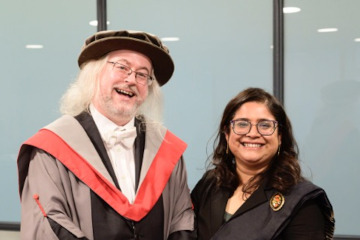PhD success for a former graduate

Last month Professor Simon Dobson was invited to be on the PhD examining committee for Indushree Banerjee at TU Delft. She passed with flying colours, for her thesis on ad hoc network protocols for use in disaster recovery situations. The protocol is designed around a very strong model of social justice and equality, working on … PhD success for a former graduate